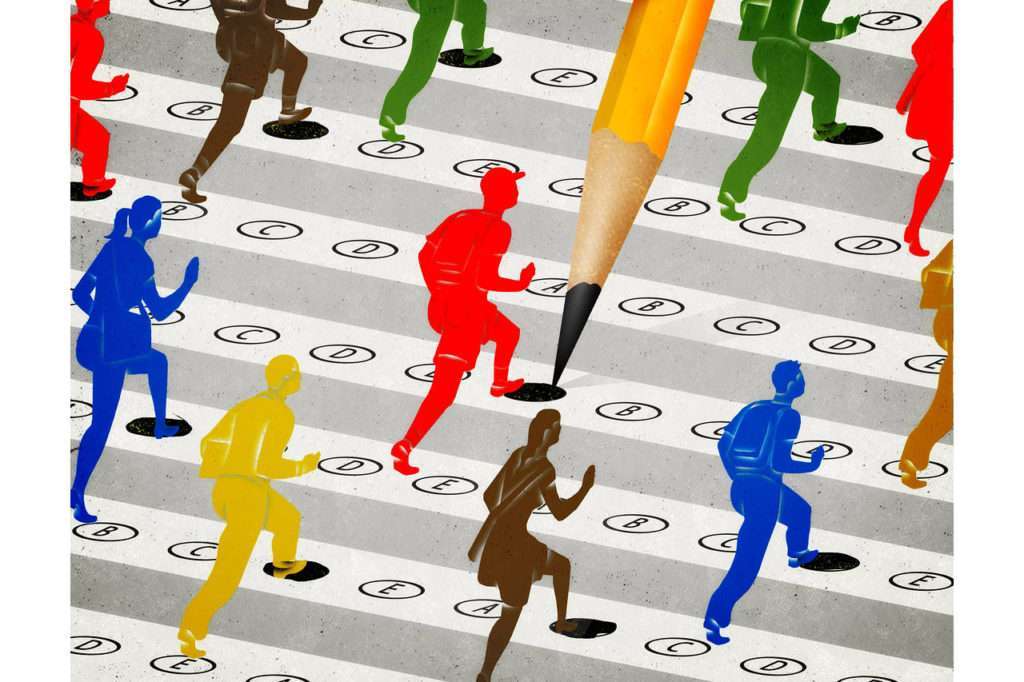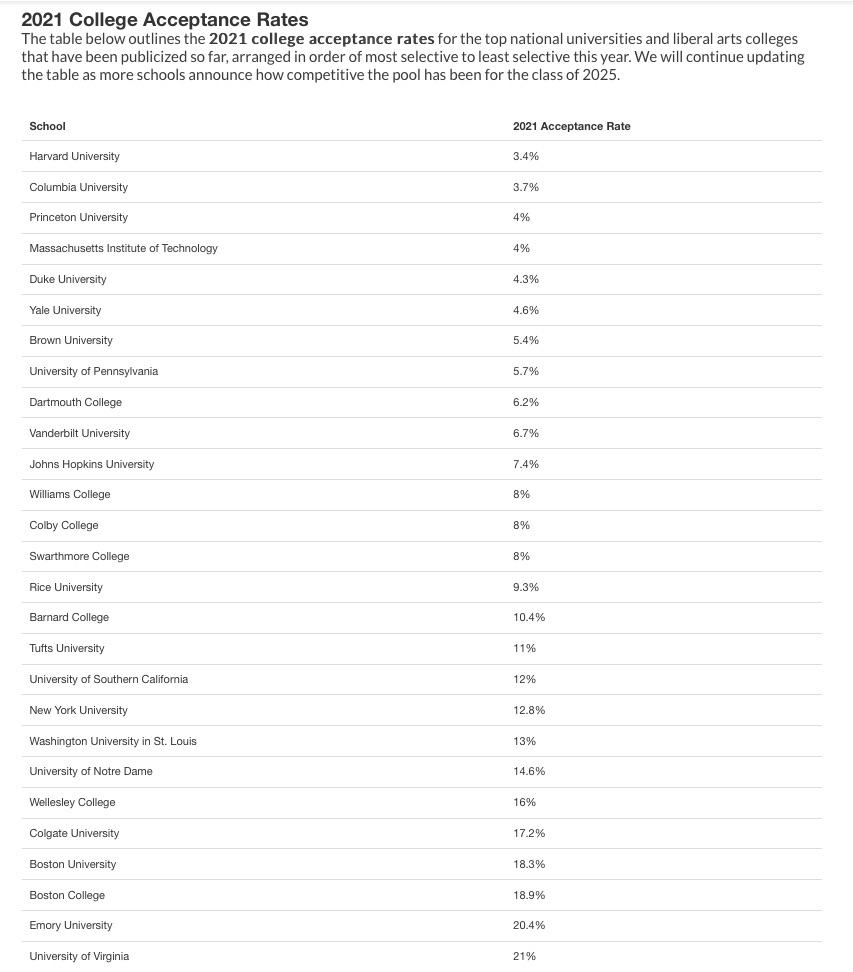(Read Part 1 of this two-part post here.)
Third thing to say about the false dichotomy in standardized testing perpetrated by media is that it’s hurting college-bound students. Like all dichotomies, it nurtures black-and-white thinking: good or bad, in or out, Democrat or Republican. And black-and-white thinking, in turn, fosters superficial thinking, quick rather than deliberate choices, and little-to-no consideration of shades of gray that may exist between the polar opposites.
Through that lens, take a look at the new household term in college admissions, “test optional.” I wrote at some length about this last summer (The “Test Optional” Trap: How COVID-19 Kills in College Admissions) and won’t rehearse the whole argument in this post, but here’s the gist to save you a click (no wait, click that one AFTER this ;-)).
“For some reason, the term “test optional” creates the false impression among many students and families, spreading like COVID-19 through the summer and maybe hasn’t peaked yet, that you have about an equal chance whether you opt in or opt out. Not even close! Numbers don’t lie. Bottom line: students have a much better chance of getting into test optional schools if they submit a decent score.”
Fast forward nine months—enough time to make a whole human baby—and most families did NOT get the memo. How do we know? Because, as the CommonApp (third party to standardized tests and the most common way to apply to college, pardon the pun) reported in Most Students Not Submitting Scores, students who chose to report scores to college THIS YEAR fell from 77% to 44%. And if you’re not good at statistics or numbers make you numb, that’s a TON. Yup. 2000 lbs. And just to get all the numbers out of the way in a paragraph, those in turn led to the ugliest single-digit acceptance rate numbers our world has ever seen, with Harvard and Columbia leading the procession at 3.4% and 3.6% (see 2021 College Acceptance Rates: The Latest Admissions Trends and Ivy League Acceptance Rates Fall to Record Lows Due to Covid-19).
In an attempt to connect the dots to this point, THIS ALL HURTS COLLEGE-BOUND STUDENTS. The false dichotomy the media present about the goodness and badness of the SAT and ACT makes it super easy to pick the easy side, even when it’s wrong and even among students who tend not to wimp out on the long, high road of old-fashioned hard work. Think about it from a high school junior’s perspective: you’re taking the most challenging classes of your life, you’re ascending to leadership roles in and out of classrooms, you’re managing increasingly complex real and virtual social networks in and out of school, you’re in or recovering from a global pandemic, and now you get a choice (that’s what OPTIONAL means): do you want to carve out a possibly (likely) HUGE chunk of your precious time during this frenzied year to achieve a score at the 25th percentile or higher for colleges on your lists…or opt out (and in so doing, feeling a little tingle of satisfaction that you’re not contributing to social injustice in admissions)? Not hard to see why those numbers fell A TON. Juniors and their families are people, too.
Lest I be accused of being a test-thumper, let me state unequivocally I am not. I recently sent two children through college, and one submitted scores and one did not. And the one who did not made a conscious choice (after discussion with her parents ;-)) to invest time junior and senior years in extracurricular activities and AP classes of genuine intellectual interest rather than in raising her scores. In her individual case, it made sense not only in the context of her life in general, but also in the admissions game in particular: after assuming a number of leadership positions, she got into one of her top choices…and then graduated number one in her department four years later. Take that, test-thumpers. TRUE STORY.
Final thing to say (for now ;-)) is that those who look for the shades of gray between the black-and-white picture of standardized tests the media like to paint are the ones who end up comprising those ugly single-digit numbers above. And in so doing, they are not exercising any more of a privilege than they are when they go for tutoring, attend a soccer travel team practice, or write an honest and penetrating personal application essay. Savvy students need to perform cost-benefit analyses about whether, given everything else about their candidacies, especially their academic narratives, submitting scores might improve their chances. That decision includes consideration of both the ACT and the SAT (and AP exams where applicable), and not simply the composite (total or bottomline) scores; for example, pre-med or engineering students with relatively high ACT Science scores would be well-served to submit ACTs, even if they achieve higher overall composite scores on the SAT. Thoughtful, individual consideration of how standardized test scores can bolster your college admissions candidacy leads to far better results than those afforded by a simple and false dichotomy.
Want some help thinking through YOUR case? That’s what we’re here for! 🙂
Dr. Yo is the owner/director at CollegePrepExpress and author of:


